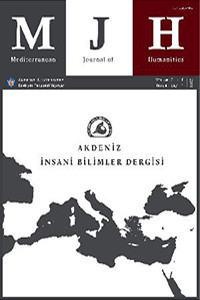Abstract
Total Quality Management applications have become interesting in the tourism sector as well as in other sectors. The first version of the EFQM Model which is created by the European Quality Management Foundation, as one of the few original Total Quality Management models in the world, was started to be used in 1990, and the last version that is prepared in accordance with current developments in 2020. The EFQM Management Model, from the first date of use, has been implemented in more than 50,000 organizations and has become a popular management tool which has taken interest of practitioners and researchers. In this study, academic studies based on the EFQM Model in the Tourism Sector were analyzed through a systematic review, tourism sector and EFQM context were handled and reported by examining the year, country, theme, citation, the journal published, the aim of the research, method, results and findings sections. Findings revealed that the EFQM Management Model is a strong application and research topic in the institutionalization needs of tourism enterprises, the development of the ability to adapt to new global trends, challenging environmental conditions, and the protection and development of competitive conditions.
Keywords
References
- Alvarez Garcia J., M. de la C. del R. Rama & M. Vila Alonso 2014, “The Effects of Quality Management Practices on Key Results: questionnaires sample for the industry of tourist accommodation in Spain”. Rbgn-Revısta Brasileira De Gestao De Negocios 16/52, 351–373. Doi: 10.7819/rbgn.v16i52.1614
- Alvarez-Garcia J., M. de la Cruz Del Rio-Rama, M. Saraiva & A. Ramos-Pires 2016, “Dependency relationships between critical factors of quality and employee satisfaction”. Total Quality Management & Business Excellence, 27/5–6 595–612. Doi: 10.1080/14783363.2015. 1021243
- Alvarez-Garcia J., M. de la Cruz del Rio-Rama & B. Simonetti 2017, “Quality management and customer results: the tourist accommodation sector in Spain”. International Journal of Quality & Relıability
- Management 34/5, 701–719. Doi: 10.1108/IJQRM-05-2015-0084 Amin M., A. M. Aldakhil, C. Wu, S. Rezaei & C. Cobanoglu 2017, “The structural relationship between TQM, employee satisfaction and hotel performance”. International Journal of Contemporary
- Hospitality Management, 29/4, 1256-1278. Aria M. & Cuccurullo C. 2017, “Bibliometrix: An R-tool for comprehensive science mapping analysis”. Journal of Informetrics, 11/4, 959-975 Doi: 10.1016/j.joi.2017.08.007
- Avcı N. & Küçükusta D. 2013, “Küresel Ekonomik Krizin Seyahat Acentelerine Etkileri ve Türkiye'de Kriz Yönetimi Uygulamaları”. Dokuz Eylül Üniversitesi Sosyal Bilimler Enstitüsü Dergisi 15/4, 571-587.
- Banales-Mallo A., M. Leticia Santos-Vijande & M. S. Aguirre Garcia 2018, “Applying Total Quality Management in a local government and its impact on urban Strategic Management: The case of San Sebastian”. Revista De Estudios Regionales 112, 67–103.
Abstract
Toplam Kalite Yönetimi uygulamaları diğer sektörlerde olduğu gibi turizm sektörü içinde ilgi çekicidir. Dünya da ki az sayıda özgün Toplam Kalite Yönetim modellerinden birisi olan Avrupa Kalite Yönetim Vakfının oluşturduğu EFQM Modelinin ilk versiyonu 1990 yılında, güncel gelişmeler doğrultusunda hazırlanan son versiyonu ise 2020 yılında kullanıma sunulmuştur. Kullanıma alındığı tarihten itibaren EFQM Yönetim Modeli 50.000’in üzerinde kuruluşta uygulanmış, uygulamacılar ve araştırmacılar tarafından ilgi duyulmuş popüler bir yönetim aracı olmuştur. Bu çalışmada Turizm Sektöründe EFQM Modeline dayalı yapılan akademik çalışmalar sistematik derleme yoluyla incelenmiş, yıl, ülke, tema, atıf, yayınlandıkları dergi, araştırma amacı, yöntemi, sonuçlar ve bulgular bölümleri incelenerek turizm sektörü ve EFQM bağlamı ele alınmış, raporlanmıştır. Bulgular turizm işletmelerinin kurumsallaşma ihtiyaçları, yeni küresel trendlere, zorlayıcı çevresel şartlara uyum yeteneğinin gelişmesi, rekabetçi kondisyonlarının korunması-geliştirilmesinde EFQM Yönetim Modelinin güçlü bir uygulama ve araştırma konusu olduğu saptanmıştır.
Keywords
References
- Alvarez Garcia J., M. de la C. del R. Rama & M. Vila Alonso 2014, “The Effects of Quality Management Practices on Key Results: questionnaires sample for the industry of tourist accommodation in Spain”. Rbgn-Revısta Brasileira De Gestao De Negocios 16/52, 351–373. Doi: 10.7819/rbgn.v16i52.1614
- Alvarez-Garcia J., M. de la Cruz Del Rio-Rama, M. Saraiva & A. Ramos-Pires 2016, “Dependency relationships between critical factors of quality and employee satisfaction”. Total Quality Management & Business Excellence, 27/5–6 595–612. Doi: 10.1080/14783363.2015. 1021243
- Alvarez-Garcia J., M. de la Cruz del Rio-Rama & B. Simonetti 2017, “Quality management and customer results: the tourist accommodation sector in Spain”. International Journal of Quality & Relıability
- Management 34/5, 701–719. Doi: 10.1108/IJQRM-05-2015-0084 Amin M., A. M. Aldakhil, C. Wu, S. Rezaei & C. Cobanoglu 2017, “The structural relationship between TQM, employee satisfaction and hotel performance”. International Journal of Contemporary
- Hospitality Management, 29/4, 1256-1278. Aria M. & Cuccurullo C. 2017, “Bibliometrix: An R-tool for comprehensive science mapping analysis”. Journal of Informetrics, 11/4, 959-975 Doi: 10.1016/j.joi.2017.08.007
- Avcı N. & Küçükusta D. 2013, “Küresel Ekonomik Krizin Seyahat Acentelerine Etkileri ve Türkiye'de Kriz Yönetimi Uygulamaları”. Dokuz Eylül Üniversitesi Sosyal Bilimler Enstitüsü Dergisi 15/4, 571-587.
- Banales-Mallo A., M. Leticia Santos-Vijande & M. S. Aguirre Garcia 2018, “Applying Total Quality Management in a local government and its impact on urban Strategic Management: The case of San Sebastian”. Revista De Estudios Regionales 112, 67–103.
Details
| Primary Language | English |
|---|---|
| Subjects | Tourism Economics |
| Journal Section | Derlemeler |
| Authors | |
| Publication Date | June 30, 2022 |
| Published in Issue | Year 2022 Volume: 12 |
| Adres: Akdeniz İnsani Bilimler Dergisi Akdeniz Üniversitesi, Edebiyat Fakültesi 07058 Kampüs, Antalya / TÜRKİYE | E-Posta: mjh@akdeniz.edu.tr |


